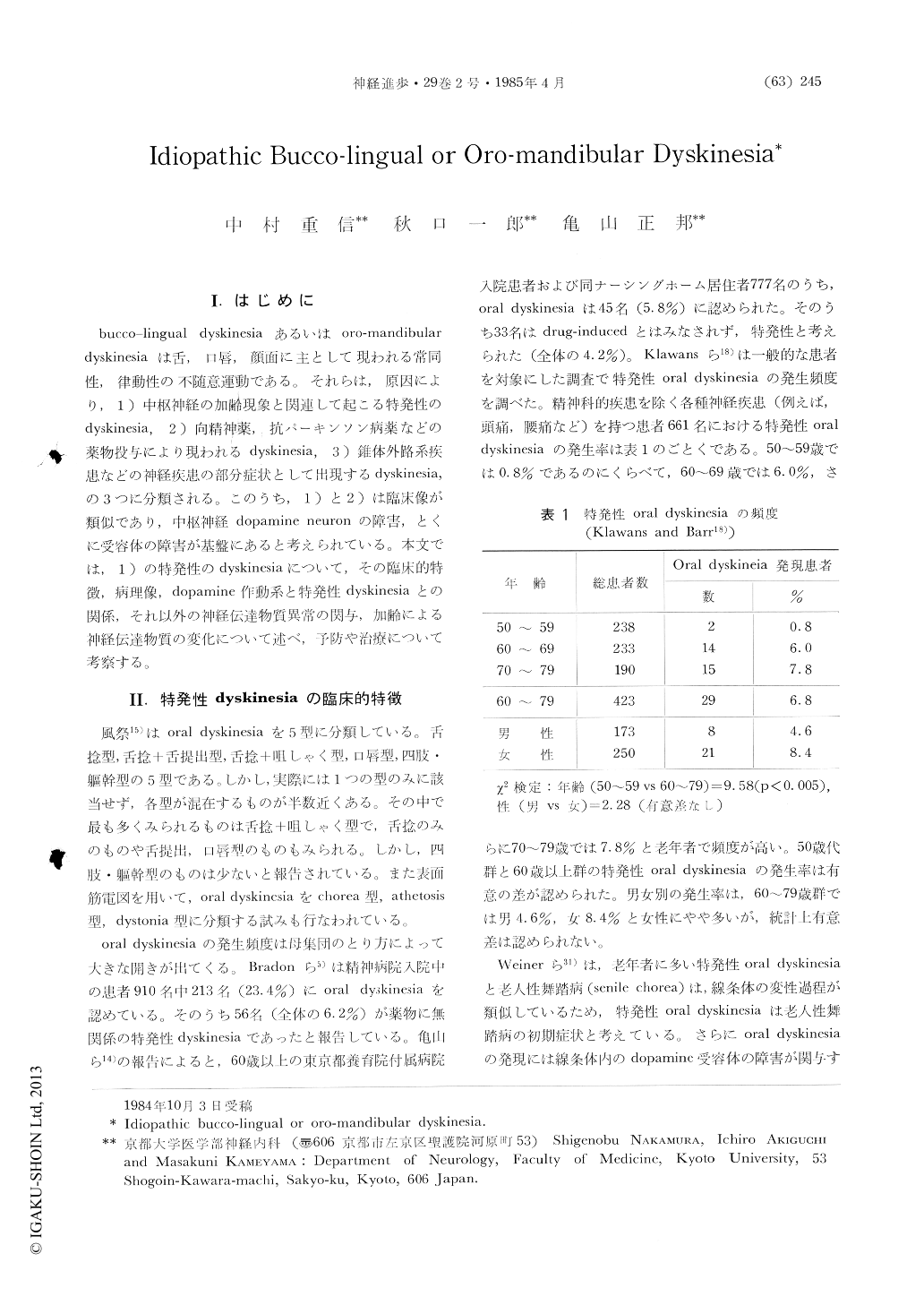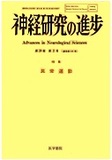Japanese
English
- 有料閲覧
- Abstract 文献概要
- 1ページ目 Look Inside
I.はじめに
bucco-lingual dyskinesiaあるいはoro-mandibular dyskinesiaは舌,口唇,顔面に主として現われる常同性,律動性の不随意運動である。それらは,原因にり,1)中枢神経の加齢現象と関連して起こる特発性dyskinesia,2)向精神薬,抗パーキンソン病薬など薬物投与により現われるdyskinesia,3)錐体外路系患などの神経疾患の部分症状として出現するdyskinesiaの3つに分類される。このうち,1)と2)は臨床像が類似であり,中枢神経dopamine neuronの障害,とくに受容体の障害が基盤にあると考えられている。本文では,1)の特発性のdyskinesiaについて,その臨床的特徴,病理像,dopamine作動系と特発性dyskinesiaとの関係,それ以外の神経伝達物質異常の関与,加齢による神経伝達物質の変化について述べ,予防や治療について考察する。
The incidence of idiopathic oral dyskinesia increases with the advance in ages. The age-related decrease in the activity of acetylcholine and GABAneurons would prepare the ground for the oral dyskinesia in the aged. The content of dopamine in the brain also decreases with the advance in ages, which may possibly induce a condition similar to the denervation supersensitivity.
On these disturbed backgrounds, idiopathic oral dyskinesia seems to appear in the aged with multiple small infarctions in the anterior part of the striatum or in the frontal lobe.

Copyright © 1985, Igaku-Shoin Ltd. All rights reserved.


